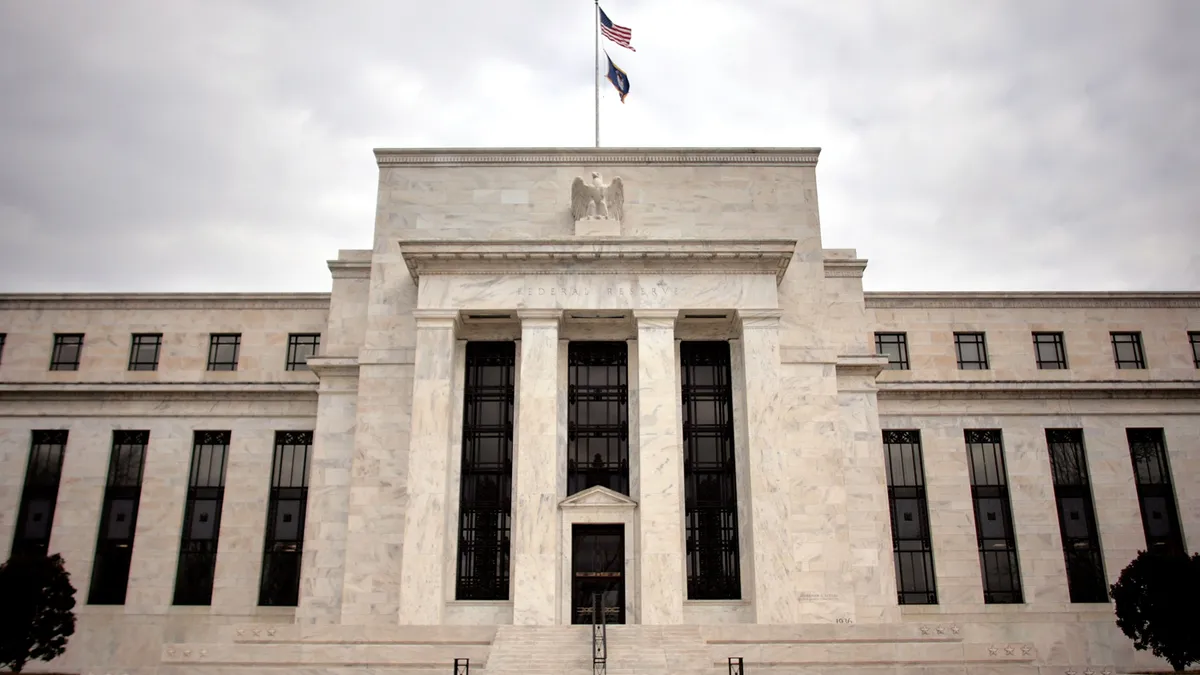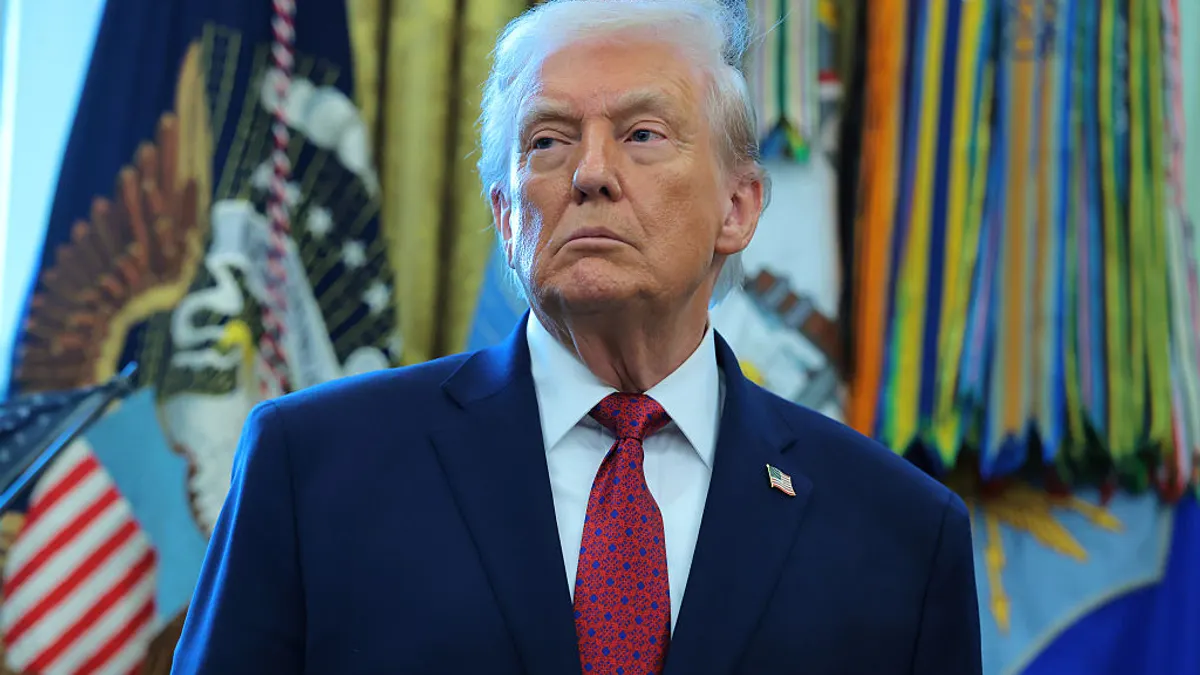The Department of Justice and the Federal Trade Commission lent their support recently to the Federal Reserve Board’s proposal to clarify a rule that steps up pressure in requiring that two independent card networks be available for routing all debit card transactions.
The two federal agencies each added a letter to the nearly 1,000 that have piled up at the Fed, which, in May, proposed clarifying the rule created as part of the 2010 Dodd-Frank Wall Street Reform and Consumer Protection Act. At the time, the Fed said evidence suggests two unaffiliated networks aren’t routinely available to process debit transactions, contrary to regulations that grew out of the law.
Businesses, organizations and individuals gave their two cents before an Aug. 11 deadline for comments on the Fed's proposal. Mainly, input came from the warring bank and merchant sides of a debate that has raged for years over what fees can be charged by card issuers and networks that process the debit transactions. The battle has intensified this year as the new Democratic majority on Capitol Hill and President Joe Biden call for more competition in U.S. business and increased antitrust oversight.
The rule clarification specifically seeks to clarify that the two-network requirement is also in force when transitions are taking place online, or in other instances when a consumer isn’t present with a card. That has become a particularly important point in the wake of a rise in e-commerce spurred by the pandemic.
The comments from the agencies are significant in that they tip their hands, to some degree, with respect to their own concerns about related card network issues. The FTC has been probing Visa’s debit routing practices since at least 2019 and Justice is also reportedly investigating some aspects of Visa’s debit card program.
In its comment to the Fed, the Department of Justice said the Fed’s move fit squarely with Biden’s efforts to increase competition in American business and strengthen antitrust laws to do so.
"We commend the Board for its efforts to promote competition in this important part of the debit card industry by ensuring that smaller debit networks will have a greater ability to compete for merchants’ business," Acting Assistant Attorney General Richard A. Powers said in an Aug. 11 press release about DOJ’s comments submitted to the Fed.
Most cards are issued by banks or credit unions, though advancing technologies increasingly allow other types of entities to issue them too.
Powers noted that in 2019, debit transactions processed online, or in other instances where the consumer wasn’t present with a card, amounted to more than $1 trillion and said there was "limited competition" in that realm. "Consistent with President Biden’s Executive Order on Promoting Competition in the American Economy, the department looks forward to working with the Board on this and other efforts to foster competition," Powers added in the release.
The rule hasn’t been effective because "many large issuers have not implemented necessary technological changes to permit debit networks other than Visa and Mastercard to process transactions," the release said.
In its Aug. 11 letter to the Fed, the DOJ underscored the potential impact of enforcing the rule in all situations. "Given the importance of this segment, increasing competition for online debit transactions could have a very significant impact on the U.S. economy as a whole."
The DOJ noted that the debit card industry is "highly concentrated" in the hands of the two largest card networks, Visa and Mastercard, which control 75% of debit transactions and 90% of transactions online, with Visa single-handedly channeling 70% of the latter.
"In practice, the (Fed) Proposal could result in issuers enabling technology that would allow smaller debit networks to process online or (card-not-present) debit transactions, which could help merchants reduce their costs and save American consumers money" the DOJ letter stated.
Beyond support for the rule clarification, the DOJ urged the Fed to consider other ways of beefing up the proposal to include all card-not-present transactions and to preempt card issuers from circumventing the rule. It also encouraged the Fed to consider ways the proposal might provide more support to smaller and new debit card networks, given that a two-network rule would still allow Visa and Mastercard to dominate debit transactions.
The Federal Trade Commission also chimed in with support for the Fed’s rule clarification.
"As the Fed’s proposed rule recognizes, issuers do not provide sufficient options to merchants for these types of payments," the Federal Trade Commission said in an Aug. 12 press release, noting it has responsibility to enforce the rule with respect to debit card networks.
In its Aug. 11 letter, the FTC noted a significant increase in debit card usage over the past decade, citing a 53% rise to 86.4 billion transactions in 2018 from 56.5 billion in 2012, and noting that the increase in purchases online was even higher, especially after the deadly COVID-19 pandemic led people to prefer contactless payments.
The FTC staff agreed with the Fed’s assessment that all too often card issuers had only enabled one network to handle debit transactions and more often than not that network was either Visa or Mastercard, the two biggest companies in the industry.
The bi-partisan commission, which is charged with protecting consumers and fostering business competition, voted to authorize the staff to support the rule clarification by a slim margin with three commissioners voting in favor and two against.
"FTC staff applauds the Board’s proposed clarification, which addresses some issuers’ failure to fully recognize that card-not-present ("CNP") transactions are a 'type of transaction' under the existing Regulation II," the letter said.
Not only did the FTC endorse the rule clarification, it also encouraged the Fed to improve the rule by prohibiting card networks from rewarding issuers who route their debit transactions over a particular network. The agency cited how an issuer could seek to improve its chances of receiving incentive payments from a card network company by disabling rival networks. "Such actions eviscerate merchant routing choice," the FTC letter said.



















